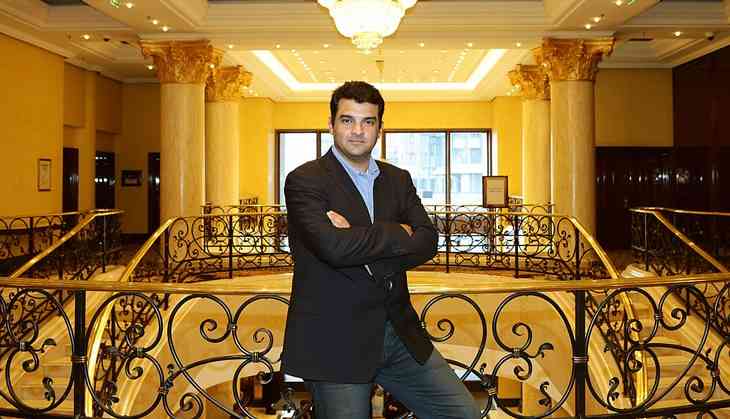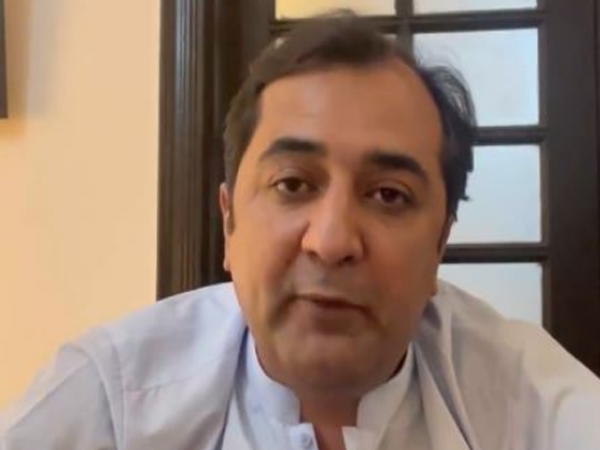Siddharth Roy Kapur slams Pahlaj Nihalani's censorship, GST rates

Over the last decade, Siddharth Roy Kapur has emerged as India's most successful movie producer. Through stints with UTV, and then as Managing Director of Walt Disney India, the man has shown an astonishing knack for picking winners.
From The Lunchbox to Dangal, if a Bollywood movie has had incredible success, the chances are that Kapur had something to do with it.
Now helming his own operation, Roy Kapur Films, he was recently in Delhi for the Word to Screen Publishers Bootcamp, organised by the Mumbai Academy for Moving Images (MAMI).
Following the event, Kapur met with Catch for a candid conversation. In it, he talked about everything – from his career, to the impact of the Goods and Services Tax (GST) on the movie industry, and even everyone's favourite 'censor' chief, Pahlaj Nihalani.
These are the edited excerpts:
Ranjan Crasta (RC): Until fairly recently, you were the MD of Walt Disney India, what made you decide to leave and set up your own operation?
Siddarth Roy Kapur (SK): I think I always wanted to branch out into being a filmmaker-producer... it's something that I gave a lot of thought to in the last couple of years.
My stint with Disney was an incredible one, and I love the organisation and the people there. I had a three-year association as the Managing Director of the company which was finishing at the end of December 2016, and so it felt like the right time to move on.
Also, with Dangal being the last film that I did there... It sort of felt like the end of that journey and the start of a new one.
RC: What is the difference in the functioning of western production houses and Indian ones? Is there something you learned from your stint with Disney that you feel gives you a competitive advantage against Indian competitors?
SK: An incredible amount. Whether it gives me a competitive edge or not, I've learnt a lot from the way that a company like Disney functions.
Disney looks at story-telling as something that can live across every story platform. A product tells a story, a movie tells a story, a TV show, a stage production, even a theme park ride tells a story. Disney looks at itself as a company of storytellers.
When you're telling stories, which is the most basic way we interact with each other as humans, you realise that you have to just be platform agnostic. If you create great characters and great stories, that is the value you really bring to your shareholders as a company.
RC: So, do you consider yourself a storyteller as much as a producer?
SK: I think as a producer you need to look at yourself as someone who makes stories come to life. You enable creative people to actually see their vision through to fruition, and you make sure they have the means and the inspiration needed to meet their creative vision. That's what it means to be a producer.
RC: At Disney you were running the show. At Roy Kapur Films you ARE running the show. Is there a particular attitude that dictates the sort of films you will produce at Roy Kapur?
SK: I suppose it just boils down to this – at the end of my career I want to look back at the movies I've made at Roy Kapur Films and be very proud of each and every one of them. If that's the way that I see the future, that will guide all the decisions I make moving forward.
RC: So Roy Kapur is about your legacy then?
SK: Whether one calls it a legacy, which sounds a little high-minded, I'm not sure. I think it's just as simple as wanting to contribute some great cinema to the country.
RC: Going back to your stint with Disney, book-to-screen adaptations are fairly common in the west, whereas in India it is less so. Why?
SK: In the west the marriage between cinema and literature was very, very close right from the birth of cinema. Filmmakers looked to literature for inspiration for the movies they were making. That might have been the case in Hindi cinema, probably in the 20s, 30s, 40s and 50s when you had a lot of inspiration from literature.
Now, with generations having grown up on decades of cinema before them, they're learning from cinema rather than literature. So I think the marriage that filmmakers had with literature has become a little less absolute than it used to be.
Moving forward, especially since now we have a strong culture of home-grown literature, I hope filmmakers can go back to that treasure trove of stories we have, and mine them for content.
RC: You've been credited with an ability to pick winners when it comes to movies. Apply your judgment to books, which book do you think will make for a great movie?
SK: Going out on a limb, I think Rohinton Mistry's A Fine Balance would be a beautiful film. It's one of my favourite books and I'd love to see that made into either a movie or a series. Neel Mukherjee's The Lives of Others is also another book that I'd love to see turned into a film or a series.
RC: Given the advent of Netflix and Prime, do you think series are probably a better bet when it comes to adapting books to the screen?
SK: While it might be easier to do so, I don't think filmmakers should give up the rigour of seeing whether a book can still be made into a two and a half hour film. Very often these days, we want to do things as a series because we think it is an easier sell. However, then books will move to being series only, but that shouldn't be the case.
Some, because of the complexity of their stories and multiple character arc, are more suited to series, but some could very well be turned into movies.
RC: Let's focus on the film industry now. GST has raised the rate of tax on the entertainment industry, how do you see this affecting the industry?
SK: I think this will have a very grave impact on the industry. The rate of tax has been moved up from an average of around 19% across the country, to 28%.
In addition to that, the film industry is the only industry where there is an additional local body tax that states are entitled to be able to levy on top of GST. This could be a crushing blow to the theatrical business. If states start doing this, then I do feel the film industry is under serious danger of coming undone.
RC: The CBFC has found itself in the news more often than most movies today. As the head of the Producers Guild, what is the organisation's stance on Pahlaj Nihalani and his brand of film censorship?
SK: I think what we'd like to say is that the government-appointed Shyam Benegal committee has made certain recommendations for the re-organisation of the CBFC, and we strongly support those recommendations.
They should be instated at the earliest, and would lead to a more logical approach to the whole concept of film certification. I believe the role of the CBFC is not censorship, but certification.
RC: Do you see the current regime of censorship affecting the sort of movies production houses want to invest in?
SK: Unfortunately, there has been some amount of self-censorship that producers have been doing at their end. Frankly so have some writers as well. This is terrible, as it will stifle creative expression as we go forward.
I think it is very important that we don't let that happen, because we have a culture of being very liberal when it comes to creative expression and that should continue. I do hope the Shyam Benegal committee's recommendations are enforced.
RC: Madhur Bhandarkar’s Indu Sarkar has stirred up controversy. What is your stance on movies depicting historical events? Should an individual or a group's objections be taken into account when it comes to such movies being released?
SK: Nothing should come in the way of the release of such movies. I believe that it's very important for creative expression to find its way to the screen, and if you don't agree with a film, just don't watch it.
RC: While you may be in a position to fight the censor board, how do you see independent and arthouse creators surviving in an atmosphere of censor board high handedness?
SK: It is very difficult for them, because they might not have the resources to go to court to fight it, for as long as they need to fight it. It's an unfortunate situation and the government should remedy this at the earliest.
RC: Nepotism in Bollywood is a hot topic following IIFA. You're an interesting case when it comes to this because you come from a semi-filmy family, but have worked your way up the ranks. Now though, your entire family is in Bollywood, with your wife a leading star, and both your brothers in the industry as well. Having seen both sides, what are your thoughts on nepotism in Bollywood?
SK: Firstly, I'd like to say that all four of us from my family who are in the business have each made our own way here. Not because of anything anyone has done for us, we made it here the hard way. Having said that, I'm sure if our progeny wanted to be in the business, you would want to give them a leg up.
That's what you would do in any profession – give them the opportunities and the chances that you would like them to have in order to be able to shine. Then it is up to them, whether they are actually able to make use of that opportunity and do something with it.
Ultimately though, regardless of these opportunities being given, we've seen that talent, the box-office, and the paying public have the last say. So do people from filmy background have an advantage? Yes they do, there's no denying that. But, at the end of they day, it is the market that decides who succeeds.







![BJP's Kapil Mishra recreates Shankar Mahadevan’s ‘Breathless’ song to highlight Delhi pollution [WATCH] BJP's Kapil Mishra recreates Shankar Mahadevan’s ‘Breathless’ song to highlight Delhi pollution [WATCH]](http://images.catchnews.com/upload/2022/11/03/kapil-mishra_240884_300x172.png)

![Anupam Kher shares pictures of his toned body on 67th birthday [MUST SEE] Anupam Kher shares pictures of his toned body on 67th birthday [MUST SEE]](http://images.catchnews.com/upload/2022/03/07/Anupam_kher_231145_300x172.jpg)






